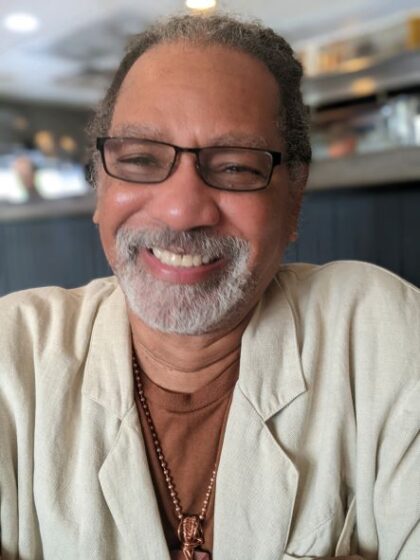“UUs & Religious Language”
During this season of rebirth and Lent, perhaps we need to revisit the religious language of the season and to explore what language triggers us.

Rev. Michael J. Carter is originally from Baltimore, Maryland. He moved to New York City in 1980 and lived there for 25 years, working as a professional actor before moving to Asheville with his family. Michael is an ordained Inter-faith minister and received his BA Degree in Letters from the College of New Rochelle where he graduated cum laude. He received his Masters In Divinity Degree from Union Theological Seminary in New York City (class of 2000).While serving various Unitarian Universalist Congregations in New York, Michael was trained as an anti-racism trainer by the Unitarian Universalist Association and has been recognized by President Clinton for his efforts. Michael has served at Mission Health System as a chaplain and diversity officer. He now serves as the minister for Unitarian Universalist Congregation of The Swannanoa Valley, in the beautiful mountains of Western North Carolina.
During this season of rebirth and Lent, perhaps we need to revisit the religious language of the season and to explore what language triggers us.
Realize that the need for approval is a very human and healthy desire—just not at the cost of your integrity and your authentic Self
It has been said that everyone wants to live a long life but no one wants to get old.
“I slept and dreamt that life was joy. I awoke and saw that life was service. I acted and behold, service was joy.”
Tagore
It is the nature of life that people we care for get ill or go through times of great difficulty. And it is natural that we feel empathy and are compelled to help in whatever way we can. But do we actually know what people truly need? With this in mind, the question becomes, do we really live in a cruel world? Let’s explore.
Perhaps we can envision our July 4th holiday as a sort of “Interdependence Day” celebration.
Let’s explore together the African American Humanistic (Atheistic) tradition.
The question for me remains, how can a religion have an appeal to an atheist, humanist, or an agnostic? This is the blessing and curse for us as UUs because we don’t really have ‘ an elevator speech” when someone asks us what it is that we truly believe.
Many in our culture view the atheist (and the agnostic) as if they had some sort of disease or virus that one doesn’t want to catch
I want to invite us to reflect on the spirituality of the ordinary.